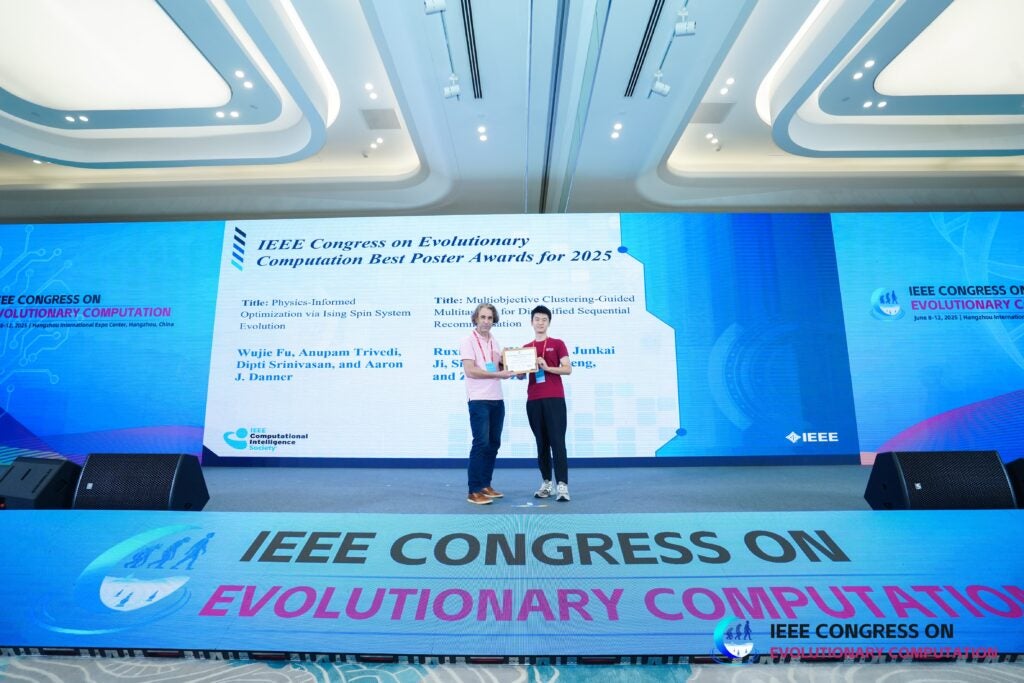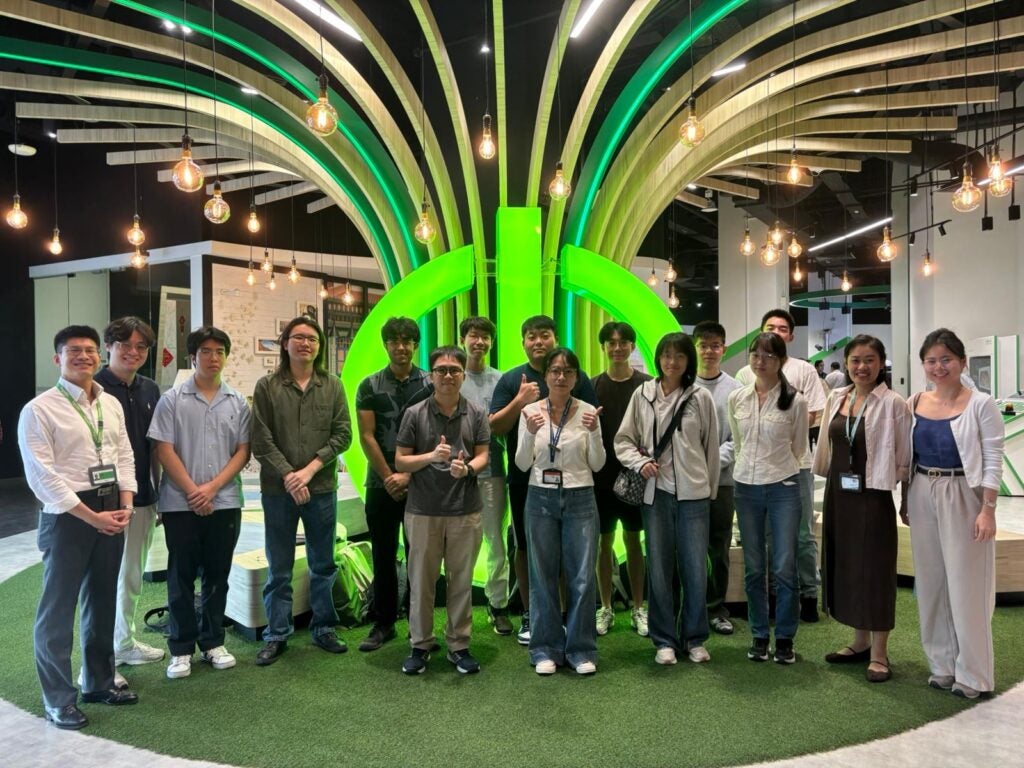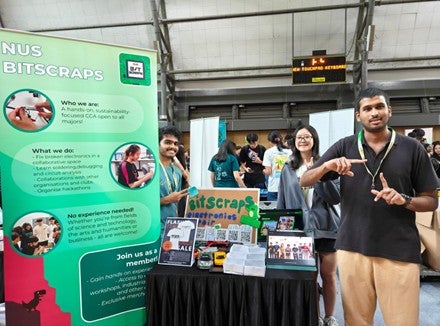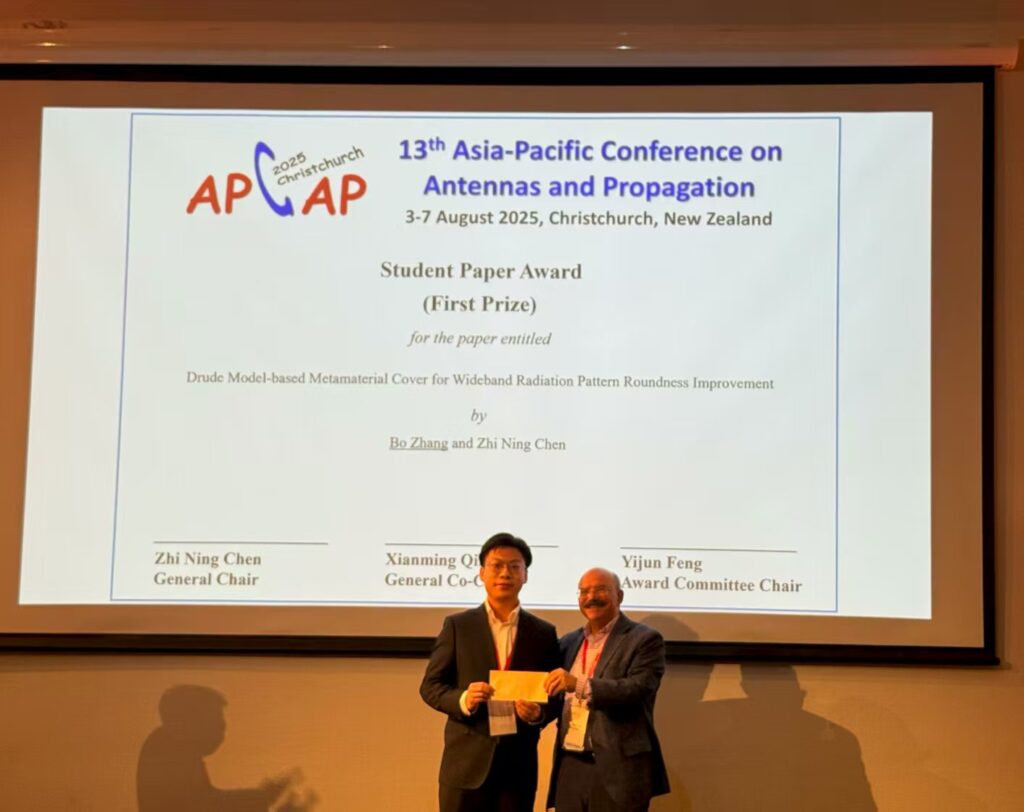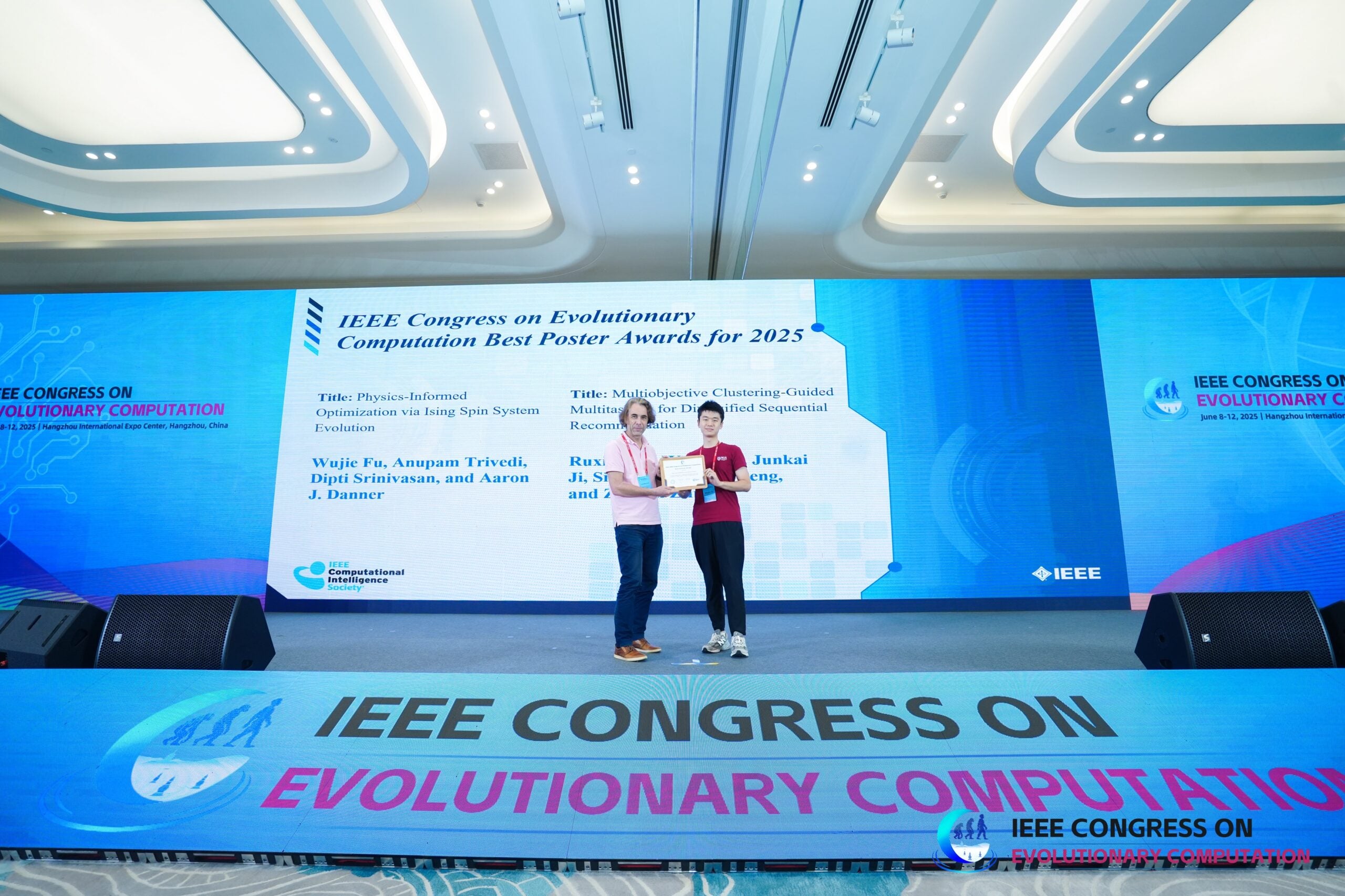
A research team from the National University of Singapore (NUS) Electrical and Computer Engineering (ECE) has been awarded the Best Poster Award at the prestigious IEEE Congress on Evolutionary Computation (CEC 2025), held from June 8–12 in Hangzhou, China. The event, organized by the IEEE Computational Intelligence Society, brought together over 500 participants from 34 countries, showcasing cutting-edge research in evolutionary computation and intelligent systems.
The winning poster, titled “Physics-Informed Optimization via Ising Spin System Evolution,” was authored by PhD candidate Wujie Fu, Senior Research Fellow Dr. Anupam Trivedi, Professor Aaron Danner, and Professor Dipti Srinivasan.
The team’s research introduces EvoIsing, a novel optimization approach inspired by the principles of physics and evolutionary computation. Drawing from the Ising spin model—a framework originally developed to describe ferromagnetism—the researchers mapped classic combinatorial optimization problems such as the Max-Cut and the Traveling Salesman Problem onto a physical energy landscape. By harnessing the natural energy minimization tendencies of spin systems, EvoIsing efficiently searches for optimal solutions in highly complex problem spaces.
“Our work bridges the gap between computational intelligence and physical systems,” said lead author Wujie Fu. “By embedding physics-based intuition into optimization, EvoIsing demonstrates the potential of nature-inspired computing to solve some of the most challenging problems in engineering and computer science.”
This recognition at CEC 2025 highlights the growing relevance of interdisciplinary approaches in solving real-world computational challenges and reinforces NUS’s leadership in innovative, high-impact research at the intersection of artificial intelligence, optimization, and physics.


